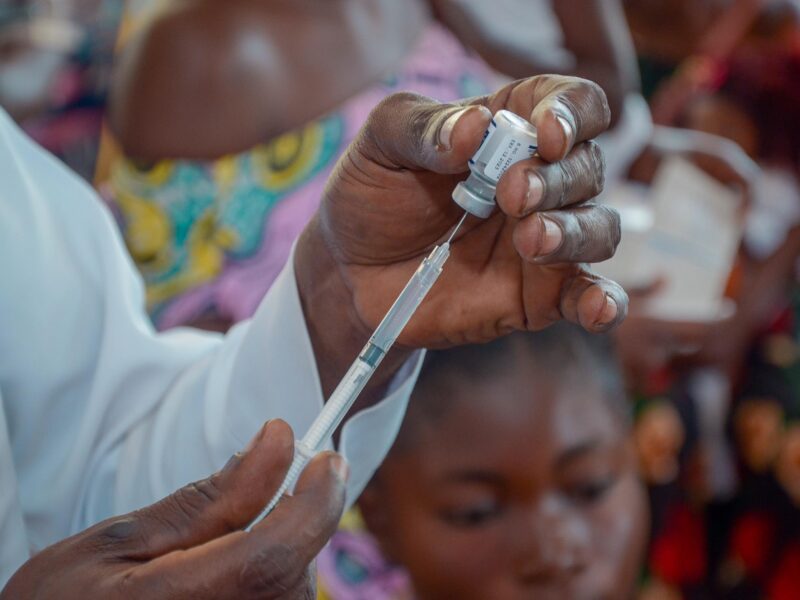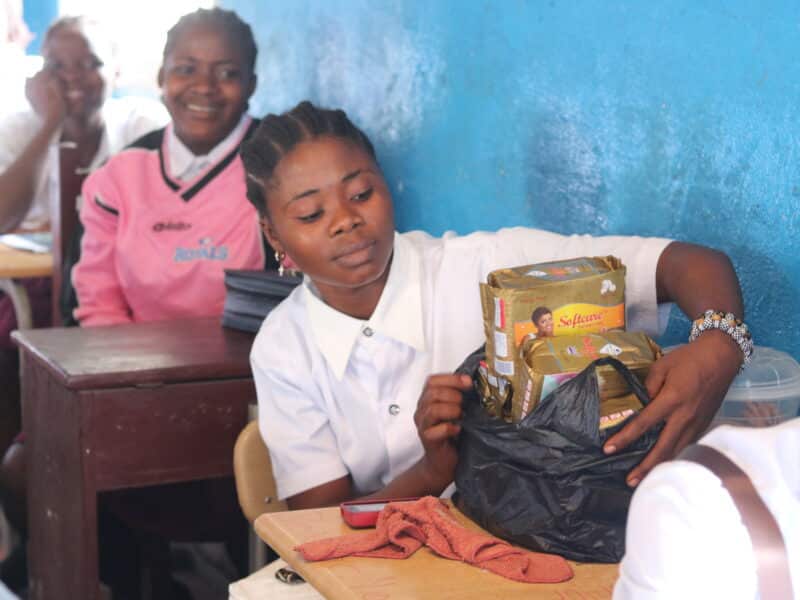The primary barrier to getting men in Cote d’Ivoire tested for HIV is fear – fear not of the disease itself, but of the social and economic consequences that a positive diagnosis could bring, new Johns Hopkins Center for Communication Programs research suggests.
The researchers, reporting Oct. 23 in the journal PLOS ONE, say this theme came up over and over again in focus groups and individual interviews conducted with men in the West African nation. The findings could inform new strategies for how to use social and behavior change communication to help men decide to undergo free HIV testing and treatment.
In Cote d’Ivoire, an estimated 2.5 percent of adults between the ages of 15 and 49 are living with HIV, but only 24 percent of men living with the virus know they are infected (compared to a still-low 43 percent of women in the country).
“We ask ourselves, ‘Why won’t people get tested for HIV? What’s the possible harm?’ That’s a very naïve question,” says CCP’s Danielle Naugle, PhD, who led the research. “The possible downside of a positive HIV test is huge. It threatens men’s values, their social and economic status, their sexuality. To some men, physical death was preferable to the social death they fear they’d experience if they were diagnosed with HIV.”
Naugle says that much of the social and behavior change communication on HIV is conducted through a lens of health, focusing on the need to be tested and treated for the virus to not only preserve your health but others’ as well. But, she says, given this research on masculinity showing that four other domains – sexuality, work and financial success, family and social status – play just as much and maybe more of a role in men’s decision-making, it would make sense to adjust the focus of HIV-related messages.
“Instead of saying, you must be tested so you can take care of your health, perhaps we should say get tested and, if you are infected with HIV, start treatment immediately so that you can keep working or so you can take care of your family so that no one suspects you have HIV unless you choose to tell them,” Naugle says.
The focus groups and interviews with 227 men were conducted in three Ivorian cities in November and December 2016. Some of the men were living with HIV; others didn’t know their status. The research was specific to HIV, but Naugle says what has been learned about men and masculinity might be applicable to other health areas, notably family planning.
Among the findings: Many men had outdated information about the accessibility and effectiveness of treatment and “an obsolete interpretation of an HIV-diagnosis as a physical and social death sentence,” the authors wrote.
The communication around HIV for the last 30 years – including photos of emaciated people dying – has played a role in where we are today in Cote d’Ivoire, Naugle says, adding “people are afraid of HIV and it remains highly stigmatized.”
“Practitioners did a great job of getting people to be afraid of HIV, but in the long run, it backfired and now people are hiding from HIV and do not want to be tested,” she says.
“We need to change the image of HIV to one of a successful man living a fulfilled life. We need to send the message that even with a positive diagnosis, you can still have a wife and have sex and work and participate actively in the community.”
Naugle says CCP has tried to do this in Cote d’Ivoire, using real people giving testimonials about their lives but they have had trouble getting men to come forward and share their stories.
“Bringing fear into focus: The intersections of HIV and masculine gender norms in Cote d’Ivoire” was written by Danielle Amani Naugle; Natalie Jean Tibbels; Zoe Mistrale Hendrickson; Abdul Dosso; Lynn M. Van Lith; Elizabeth C. Mallalieu; Anne Marie Kouadio; Walter Kra; Diarra Kamara; Patricia Dailly-Ajavon; Adama Cisse; Kim Siefert-Ahanda; Sereen Thaddeus; Stella Babalola and Christopher J. Hoffman.





